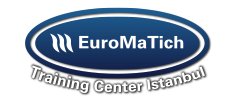Overview:
Introduction:
In today’s business world, Interviewing has been identified as a critical management skill. Proven results have concluded that the “Old Style” interview is a failure. Published results show it’s less than 1.5% likely to be successful. The new approach to interviewing is to use the behavioral approach – as recommended by psychologists. The approach once mastered will transform your ability to interview effectively. Also featured in this advanced program will be explanations and demonstrations of psychometric tests and personality questionnaires. This technique – once mastered can be used for appraisal and disciplinary interviews.
Course Objectives:
At the end of this course the participants will be able to:
- Recognize the complexities of recruitment and selection in today’s modern environment
- Understand and be able to implement the new recruitment and selection process
- Identify and write recruitment criteria for use in advertising, shortlisting, and constructing effective interview questions.
- Explain to others how the new process will save time and increase dramatically interviewing effectiveness.
- Consider the concept of and know when to use testing, and personality questionnaires and when assessment centers are appropriate.
- Design and use the two-step questioning technique which has numeric scoring.
- Experience the new complete interview process
- Maximize time, effort and costs and effectiveness of the recruitment procedure
- Utilize existing information to construct high-quality interview questions that are scoreable
- Develop personal action plans for improvement – particularly the balanced score method and the new behavioral questioning system
Targeted Audience:
- HR Managers
- HR Supervisors
- HR Staff
- Recruitment Saff
- Persons who want to gain knowledge to improve their profile
Course Outlines:
Unit 1: Where Are We Now – Current Skills and Knowledge VS New:
- Why interviews are often so ineffective
- Examining your current skill levels – Knowledge – exercise
- Examining your current – skills – exercise
- Interviewing first practice
- Interviewing – observing others
- Interviewing – What it is like being interviewed
- The Myths about interviewing
- Completing your personality profiler
Unit 2: The New Process of Interviewing – New Approach, New Results:
- The new recruitment/interview model explained
- Why we need a change
- Review and discussion
- STEP 1: Jobs descriptions and terms of reference their role in the process
- Putting the criteria behavioral map together – what is the criteria?
- STEP 2: Practice exercise gathering criteria information for future use – creating the job advert
- Practice exercise -putting steps 1 & 2 into action
- STEP 3: New approach to shortlisting – how to save lots of time
Unit 3: Testing, Personality Profiling, and Assessment Centres:
- STEP 4: Testing – the three groups of testing – why do we need testing?
- Psychometric Test Vs Occupational tests – latest advancements
- Design and use of local ability test – practical example – group exercise
- Another testing you may want to consider – examples
- STEP 5: Personality profiling – advances in profiling – from “Type” profile to occupational profiles
- Personality profiling – what we use it for – what results in you can expect
Unit 4: Questioning Techniques and Observing Body Language:
- STEP 6: The new approach to interview questions
- Signposting – advantages for the interviewer and interviewee
- The construction and use of knowledge-based questions – demonstration and practice
- The purpose and use of probing questions
- Starting the interview correctly – practice in groups
- How many people on the interview panel to make questioning meaningful?
- STEP 7: design and layout of the interview room
- STEP 8 How to use body language – practical examples and demonstrations
Unit 5: Putting Interviewing Skill into Practice:
- Review of learning to date
- Practicing introductions – group team exercise
- The real cost of bad interviewing
- Practical interview – Interview 1
- Practical Interview – Interview 2
- Practical interview – Interview 3
- Making the final selections and necessary professional actions
- Updating skill and knowledge sheets


